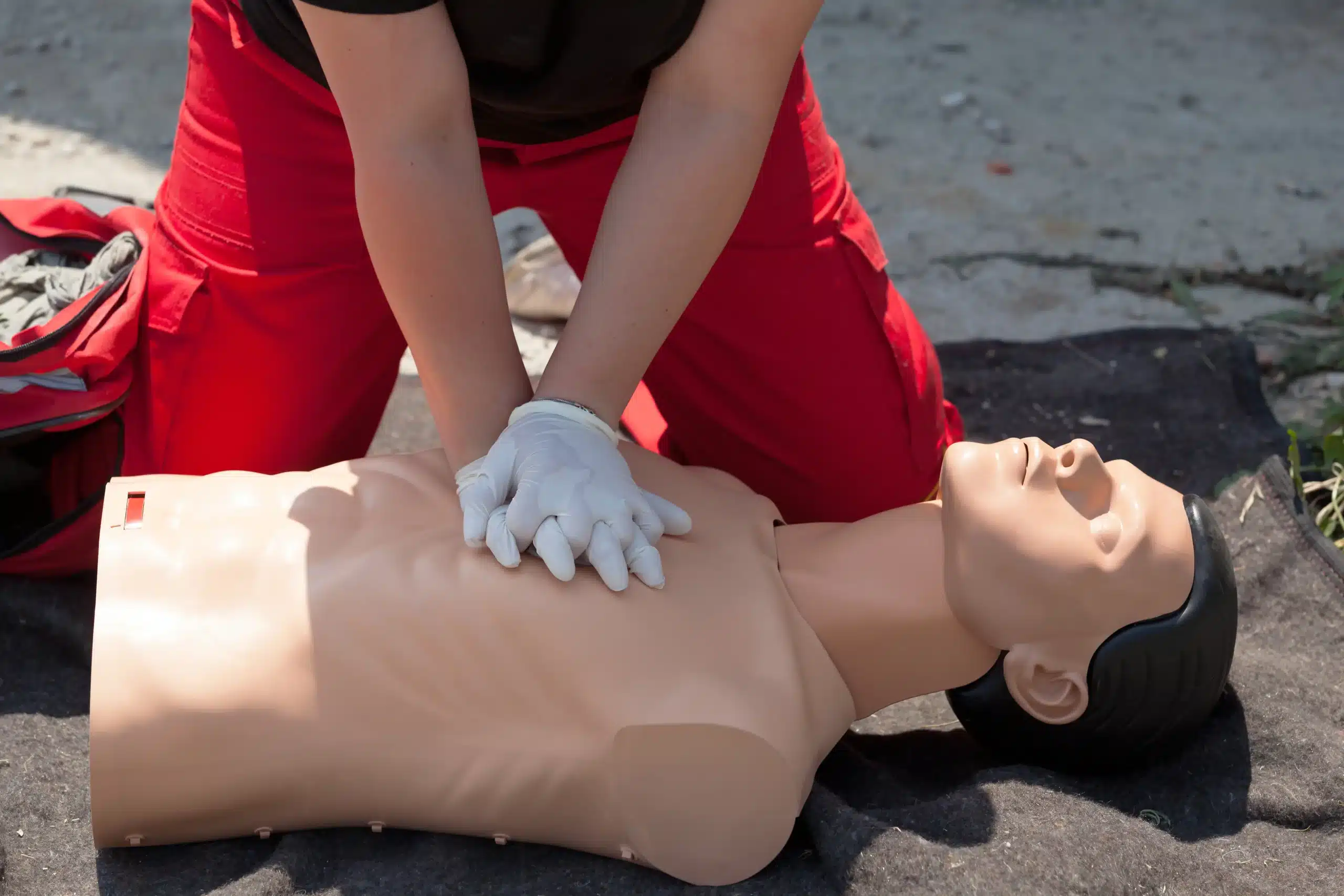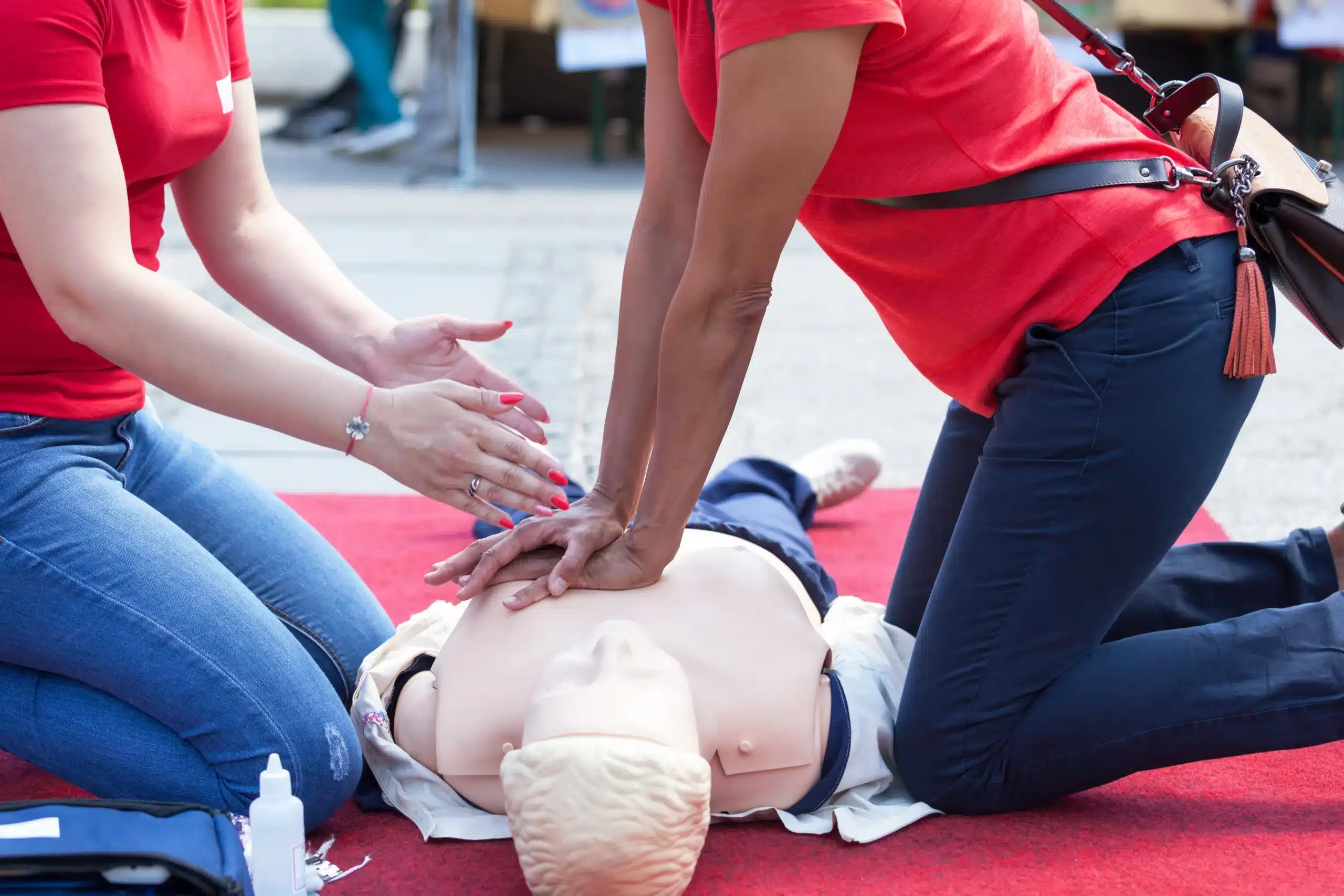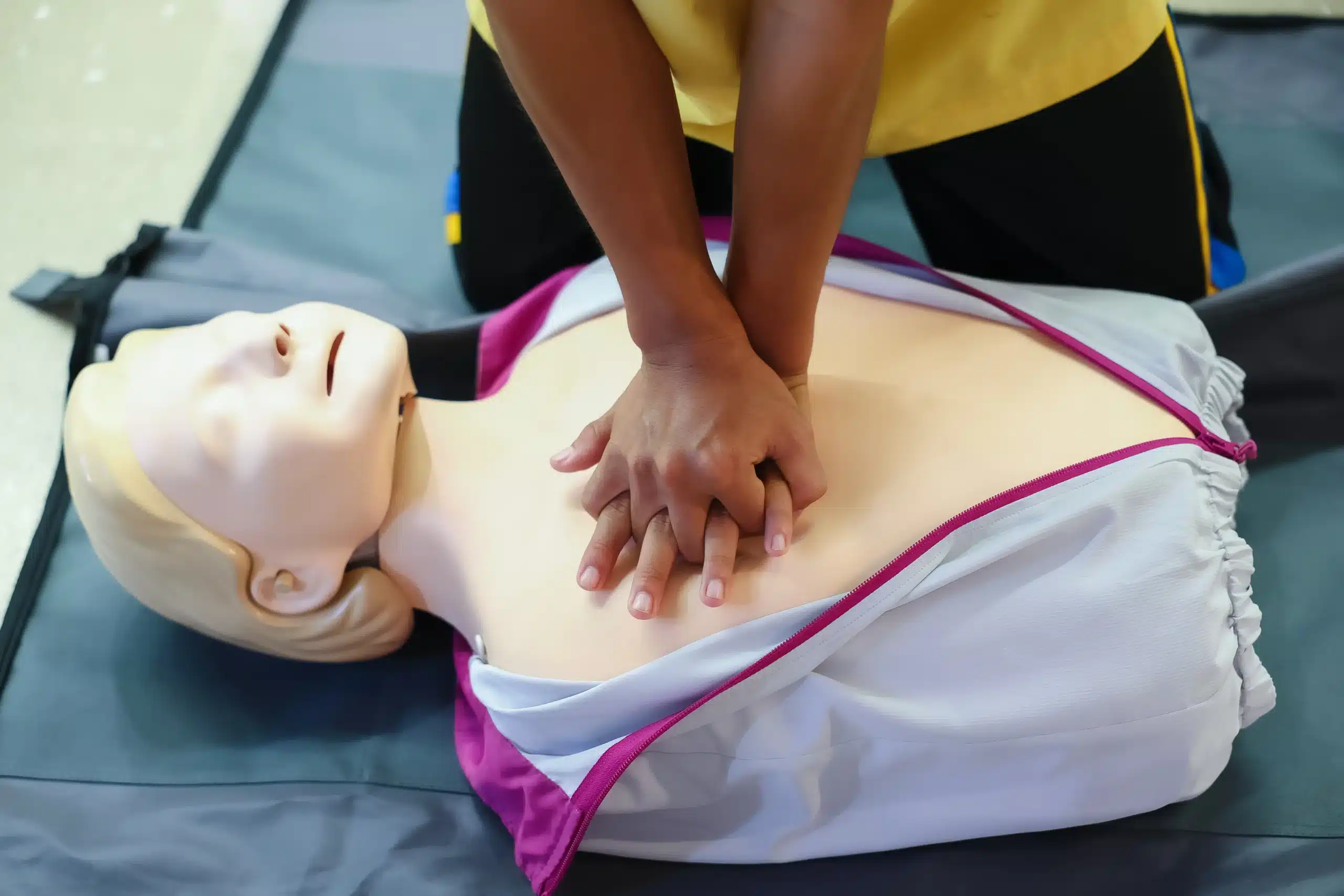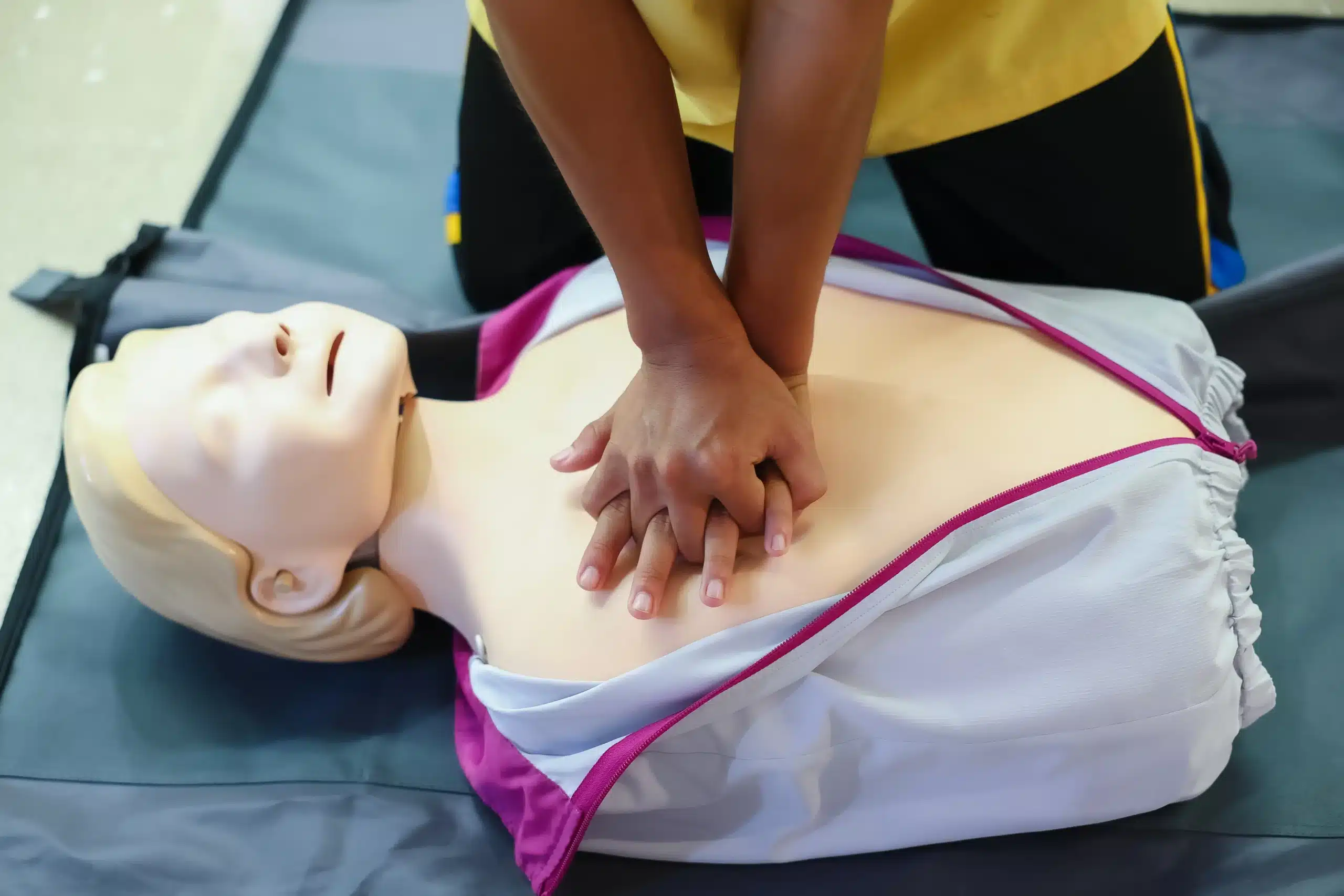Seconds can matter in a pediatric emergency. As a healthcare provider, you need to be prepared to act quickly and decisively when a child’s life is on the line. Pediatric Advanced Life Support (PALS) training provides the skills and confidence to handle these critical situations. This comprehensive guide explores the importance of pediatric advanced life support in San Jose, a city where access to top-notch training is paramount. We’ll cover everything from the basics of PALS certification to the significant impact it has on local healthcare. Join us as we break down the steps to becoming PALS certified, discuss the costs and benefits, and highlight resources available in San Jose.
Key Takeaways
- PALS certification equips healthcare providers with essential skills: It provides the knowledge and hands-on training necessary to manage pediatric emergencies effectively, leading to improved patient outcomes.
- Finding the right PALS course in San Jose is easy: Explore various options, including Safety Training Seminars, local hospitals, and the AHA website, to find a program that fits your schedule and learning preferences.
- PALS certification offers significant value: It enhances your career prospects, builds confidence in your abilities, and strengthens the overall quality of pediatric care in the San Jose community.
What is Pediatric Advanced Life Support (PALS)?
Definition and Purpose
Pediatric Advanced Life Support (PALS) certification is crucial for healthcare providers caring for children and infants. It equips providers with the skills to recognize and respond to life-threatening pediatric emergencies. PALS focuses on a systematic approach to rapidly assess, stabilize, and treat young patients. This specialized training goes beyond basic life support, covering the complexities of pediatric physiology and the unique challenges of pediatric emergencies. The goal is to give healthcare professionals the tools to provide high-quality emergency care, ultimately improving patient outcomes. For healthcare providers working with children, maintaining current PALS certification demonstrates a commitment to providing excellent care.
Importance of PALS in Pediatric Emergencies
PALS training is essential for improving pediatric emergency care and patient outcomes. It empowers healthcare providers to make quick, informed decisions and deliver timely interventions, which directly impacts survival rates during emergencies. PALS covers a wide range of critical skills, from airway management and breathing support to recognizing and treating cardiac and respiratory arrest. By standardizing emergency procedures and emphasizing rapid response, PALS helps healthcare teams work together efficiently, minimizing errors and maximizing treatment effectiveness. This specialized training is vital for anyone working in pediatric emergency medicine, intensive care, or any setting where they might encounter critically ill children. Our PALS courses in San Jose offer comprehensive training to meet these critical needs.
Find Top PALS Providers in San Jose
Finding the right Pediatric Advanced Life Support (PALS) provider is crucial for receiving high-quality training. Here are some avenues to explore in San Jose:
Safety Training Seminars
Safety Training Seminars offers AHA-certified PALS courses along with other essential certifications like CPR, BLS, ACLS, First Aid, and EMSA. They focus on providing comprehensive instruction and ensuring students receive training aligned with the latest AHA guidelines. Check their course schedule and register for a class online. Their commitment to excellent customer service and a low price guarantee makes them a solid choice for your PALS training.
American Heart Association (AHA) Training Centers
The American Heart Association website is a valuable resource for finding authorized training centers near you. These centers adhere to AHA standards and offer various courses, including PALS. Searching by location will give you a list of nearby options, ensuring you find a reputable provider. AHA Training Centers in San Jose play a vital role in improving pediatric emergency care and patient outcomes by equipping healthcare providers with essential knowledge.
Local Hospitals and Medical Centers
Many hospitals and medical centers in San Jose offer PALS certification and renewal courses. Contacting local hospitals or browsing their websites for continuing education programs is a good place to start. These institutions often integrate PALS training into their professional development for healthcare providers working with children. They are a convenient option for those seeking reputable, local training.
Understand PALS Course Details
Course Duration and Format
PALS courses blend online learning with hands-on skills practice and testing. Expect to spend three to four hours on the online portion, followed by a 30–40 minute skills session at a testing center. This blended approach lets you learn at your own pace online, then demonstrate your skills in person. The PALS course covers a range of topics, from initial assessment and stabilization to managing breathing and heart problems, and emphasizes effective teamwork during medical emergencies.
Prerequisites
Before you register for PALS training, most programs require proof of current BLS certification. Make sure your BLS certification is up-to-date to avoid any delays.
Key Topics and Skills
PALS certification focuses on advanced life support techniques for children facing life-threatening situations. You’ll learn how to assess and manage respiratory distress, shock, and cardiac arrest, equipping you with the skills to provide critical care during pediatric emergencies. These skills are crucial for any healthcare provider working with children.
Online Learning
Online PALS courses offer a convenient way to learn the material and fit the training into your busy schedule. The flexibility of online PALS courses makes it easier than ever to get and renew your certification.
Hands-On Skills Testing
While the online portion covers essential knowledge, the hands-on component of PALS training is equally important. These sessions use simulations and real-life scenarios to build your confidence in applying pediatric-specific techniques during actual emergencies. This practical experience is invaluable for ensuring you’re prepared to respond effectively under pressure.
Evaluate PALS Certification Costs & Value
Knowing the price range for Pediatric Advanced Life Support (PALS) courses helps you budget effectively and find the best value. Let’s break down the costs associated with PALS certification and explore how this training provides a significant return on investment.
Average Course Prices
In San Jose, the average cost for a PALS course is around $290. This typically covers the online portion, the hands-on skills testing session, and your PALS certification card. Remember that prices can vary, so comparing options is always wise. Many providers, like San Jose CPR Classes, emphasize their competitive pricing.
Safety Training Seminars’ Low Price Guarantee
Safety Training Seminars sets itself apart with a low price guarantee for PALS training. They’re committed to making quality training accessible and affordable in Northern California, ensuring cost doesn’t prevent people from learning these essential skills.
Group Discounts and Promotions
If you’re organizing training for a group, look for providers that offer discounts. Some have discounts of up to 20% for groups of two to five people. This can be a great way to lower costs for organizations training their teams or for a group of colleagues enrolling together. Check with individual providers like CPR Training Center about their group discount policies.
Return on Investment
Consider PALS certification an investment, not simply an expense. This training gives healthcare providers the advanced skills to manage pediatric emergencies effectively. The resulting improvements in patient care and outcomes are invaluable for both individual practitioners and the healthcare system. San Jose CPR Classes highlights how this training enhances the quality of pediatric emergency care.
Get PALS Certified: The Process
Steps to Certification
Becoming PALS certified is straightforward. Healthcare professionals in San Jose can find PALS courses offered through the American Heart Association (AHA). These courses typically blend online learning with in-person skills testing. The online portion usually requires around 3–4 hours, while the hands-on skills session at a training center takes about 30–40 minutes. You’ll cover essential topics like assessing and stabilizing young patients, managing respiratory and cardiac emergencies, and working effectively as part of a medical team. Check out our available PALS courses in San Jose (Willow Glen) to get started.
Renewal Requirements
Your PALS certification is valid for two years. After that, healthcare providers need to renew their certification to maintain their credentials and stay up-to-date on the latest protocols and best practices in pediatric emergency care.
Maintaining Skills
PALS courses use practical simulations and real-life scenarios to help you build confidence and proficiency in pediatric emergency response. This hands-on training is crucial for effectively applying your skills during real emergencies. The courses also often incorporate case studies and practice questions to reinforce your learning and better prepare you for the certification exam. For more insights, read about common challenges healthcare workers face during PALS certification and discover helpful strategies to overcome them.
Choose the Right PALS Course
Choosing the right PALS course is a crucial step towards becoming a confident and effective pediatric healthcare provider. With various options available, it’s essential to consider your individual needs and learning style. This section will guide you through the key factors to consider when selecting a PALS course in San Jose.
Factors to Consider
First, think about your schedule. Balancing work and personal commitments with the demands of a PALS course can be tricky. Look for courses offering flexible scheduling options, like weekend or evening classes. Safety Training Seminars in San Jose, for example, offer various schedules to accommodate busy professionals. Consider your learning preferences, too. Do you thrive in a traditional classroom or prefer the flexibility of online learning? Some courses blend online modules with in-person skills sessions, providing a balanced approach. Finally, location matters. Choose a training center that’s conveniently located to minimize travel time.
Compare Courses
Once you’ve identified your needs, start comparing available courses. Look at what each course covers. A comprehensive PALS course should align with the latest American Heart Association (AHA) guidelines and cover essential topics like pediatric assessment, resuscitation, and emergency care. AHA-certified courses are a good starting point. Research the instructors’ experience and qualifications. Experienced instructors can provide valuable insights and guidance. Ask about class sizes. Smaller classes often allow for more personalized attention and interaction with the instructor. Safety Training Seminars offers a range of AHA-certified courses, giving you options to compare.
Importance of AHA Accreditation
Choosing an AHA-accredited PALS course is essential. AHA certification is widely recognized in the healthcare community, ensuring your credentials are respected. AHA-accredited courses adhere to rigorous standards, guaranteeing you receive high-quality training based on the latest scientific evidence and best practices. Safety Training Seminars offers AHA-certified PALS training. This accreditation demonstrates your commitment to providing the best possible care for your young patients. Choosing an AHA-accredited course like the RQI program offered through Safety Training Seminars ensures your training meets the highest standards.
Benefit from PALS Certification
PALS certification, especially in a bustling city like San Jose, offers numerous advantages, from career advancement to personal satisfaction. Let’s explore some key benefits:
Enhance Emergency Response Skills
PALS certification equips you with the skills to recognize and respond to life-threatening pediatric emergencies. In a crisis, seconds count. PALS training provides the knowledge and practical skills to quickly assess a situation, make critical decisions, and administer appropriate interventions, significantly impacting the outcome for a child or infant facing a medical emergency. Learn more about common misconceptions surrounding PALS certification.
Advance Your Career
In the competitive healthcare field, PALS certification is a valuable asset, demonstrating your commitment to providing high-quality pediatric care and opening doors to new opportunities. Many healthcare facilities require PALS certification for positions involving the care of children and infants. Earning this credential can make you a more desirable candidate for jobs and promotions, enhancing your career prospects.
Improve Patient Outcomes
PALS certification directly contributes to better outcomes for young patients. By empowering healthcare providers with the knowledge and skills to deliver prompt and effective interventions, PALS helps improve survival rates during emergencies. Find PALS Certification classes in San Jose to get the training needed to make a real difference.
Increase Confidence
Knowing you can handle a pediatric emergency brings confidence and peace of mind. PALS training provides the tools and knowledge to effectively manage stressful situations. Read testimonials from others who have completed PALS training and gained increased confidence, translating to improved performance and better patient care.
Improve Teamwork
Effective teamwork is crucial in emergency situations. PALS training emphasizes communication and collaboration skills, enabling healthcare professionals to work together seamlessly during a crisis. Clear communication and coordinated efforts can significantly improve the effectiveness of emergency response, leading to better patient outcomes.
Prepare for Your PALS Course
Getting ready for your PALS course can make a real difference in how well you absorb the information and perform on the exam. It’s not just about showing up—it’s about showing up prepared. This section offers practical advice to help you get the most out of your PALS training.
Study Materials and Resources
PALS certification is a valuable asset, especially in pediatric emergency care. It’s important to understand that PALS certification differs from basic life support (BLS) training. While BLS provides a foundation, PALS builds upon it with advanced techniques specifically for children. To start preparing, gather your study materials. The American Heart Association provides resources like the PALS Provider Manual. You can also find practice exams and other helpful study guides online. Reviewing these materials beforehand will give you a head start in the course. Many providers, like Safety Training Seminars, offer preparatory materials, so check with your chosen training center. Our BLS course is a great option for refreshing fundamental life support skills.
Tips for Success
PALS courses often incorporate case studies and practice questions. Actively participating in these exercises is one of the best ways to prepare for the PALS exam. Don’t be afraid to ask questions during the course. Clarifying any doubts early on will solidify your understanding. Also, consider forming study groups with classmates. Collaborating with others can offer different perspectives and reinforce learning. Check out our PALS courses in San Jose to find a class that fits your schedule.
Overcome Challenges
One common hurdle is balancing work schedules with the demands of PALS training. If you’re a healthcare provider juggling shifts, explore online learning options or blended courses that combine online modules with in-person skills sessions. This flexibility can make fitting training into your busy life much easier. Another challenge is deciding between PALS and ACLS certification. If you work primarily with children, PALS is generally the standard. For those working in environments with both children and adults, both certifications might be beneficial. Our RQI program offers another flexible training option for healthcare professionals. Remember, Safety Training Seminars offers a low price guarantee, so you can get high-quality training without breaking the bank. We also offer courses specifically designed for California childcare providers covering health, safety, and lead poisoning. You can find more information and register for these specialized courses on our website.
Manage Time Constraints & Scheduling
Juggling work, family, and other commitments can make finding time for professional development tough. Thankfully, PALS courses in San Jose understand these challenges and offer flexible options to fit your busy schedule.
Flexible Course Options
Many providers recognize that healthcare professionals often have demanding and unpredictable schedules. To accommodate this, they offer various course formats, including weekend classes, evening sessions, and accelerated programs. Some, like those highlighted by Illinois Safety, prioritize simulations and real-life scenarios to maximize learning in a condensed timeframe. This focus on practical application helps you develop the confidence to use your skills effectively during actual emergencies. Finding a course that aligns with your availability is the first step toward getting PALS certified.
Balance Online Learning and Practice
One increasingly popular option is blended learning, which combines online coursework with in-person skills sessions. This approach lets you study the cognitive portion of the PALS material at your own pace, anytime, anywhere. Providers like Health Ed Solutions offer this format, allowing you to complete online modules before attending hands-on practice sessions. This blended approach offers a convenient way to fit PALS training into your busy schedule. Consider this option if you need flexibility in your study time.
Course Availability
It’s important to find a training center that offers courses frequently and has readily available seats. Safety Training Seminars in San Jose, for example, provides a comprehensive range of American Heart Association (AHA) certified courses, including BLS, ACLS, and PALS, ensuring convenient access to high-quality training. Check their website or contact them directly to explore upcoming PALS course dates and secure your spot. With a little research, you can find a course that works for you and get started on your path to PALS certification.
PALS Certification’s Impact on San Jose Healthcare
PALS certification significantly impacts healthcare in San Jose by equipping professionals with the skills to handle pediatric emergencies effectively. This specialized training enhances emergency response, ensures compliance with regulatory standards, addresses local health challenges, and fosters community trust.
Improve Emergency Response
PALS certification empowers healthcare providers in San Jose with the expertise to swiftly identify and respond to life-threatening situations involving infants and children. The training instills confidence and competence in managing pediatric emergencies, leading to improved outcomes and increased survival rates. Preparedness is key, and PALS equips professionals to deliver prompt, effective interventions when seconds count. Learn more about PALS courses in San Jose.
Meet Regulatory Requirements
In many healthcare settings, PALS certification is a mandatory requirement for professionals involved in pediatric care. This certification demonstrates a commitment to providing high-quality emergency care and streamlines treatment processes. By adhering to these regulatory standards, healthcare providers ensure they possess the necessary skills and knowledge to handle pediatric emergencies effectively. PALS and ACLS certifications are often required together.
Address Local Health Challenges
PALS certification plays a vital role in addressing local health challenges specific to San Jose. By equipping healthcare professionals with specialized pediatric emergency skills, the community’s capacity to respond to critical situations involving children is strengthened. This enhanced preparedness contributes to better patient outcomes and strengthens the overall healthcare infrastructure within the city. Overcoming the challenges associated with PALS training is crucial for healthcare providers dedicated to pediatric care.
Enhance Community Trust
When healthcare providers hold PALS certification, it builds trust within the San Jose community. Residents can feel confident that their children will receive appropriate care in emergencies. Safety Training Seminars offers comprehensive, AHA-certified PALS training, further reinforcing the commitment to community health and safety. This commitment to high-quality training strengthens the bond between healthcare providers and the families they serve.
Related Articles
- PALS Certification Classes in San Jose | AHA PALS Courses
- BLS Certification in Santa Clara: A Guide for Healthcare Providers – San Jose CPR Classes
- Safety Training Seminars San Jose: A Complete Guide – San Jose CPR Classes
- ACLS Courses in Sunnyvale: Your Complete Guide – San Jose CPR Classes
- CPR Certification San Jose: Your Complete Guide – San Jose CPR Classes
Frequently Asked Questions
What exactly does PALS certification cover?
PALS certification delves into advanced life support techniques specifically designed for children. It covers a broad spectrum of skills, from recognizing and managing respiratory distress and shock to dealing with cardiac arrest in infants and children. The training emphasizes a systematic approach to assessment, stabilization, and treatment, ensuring healthcare providers can act swiftly and effectively in emergencies.
How long is PALS certification valid, and how do I renew it?
PALS certification is typically valid for two years. To renew your certification, you’ll need to complete a PALS renewal course before your current certification expires. Renewal courses cover updates to guidelines and reinforce essential skills, ensuring you stay current with the latest best practices in pediatric emergency care.
Why is PALS certification important for healthcare providers?
PALS certification is crucial for any healthcare provider working with children. It equips them with the specialized knowledge and skills to handle pediatric emergencies effectively, leading to improved patient outcomes and potentially saving lives. It also demonstrates a commitment to high-quality care, enhancing professional credibility.
What’s the difference between PALS and BLS certification?
While both are essential for healthcare providers, BLS (Basic Life Support) focuses on fundamental life-saving techniques, such as CPR and basic airway management, for all age groups. PALS (Pediatric Advanced Life Support) builds upon this foundation, providing advanced skills and knowledge specifically tailored to the unique needs of infants and children in life-threatening situations.
How can I find a reputable PALS training provider in San Jose?
You can find reputable PALS training providers in San Jose through several avenues. The American Heart Association website lists authorized training centers, ensuring quality and adherence to their guidelines. Local hospitals and medical centers often offer PALS courses as part of their continuing education programs. Independent training centers like Safety Training Seminars also provide comprehensive PALS certification courses. When choosing, consider factors like course schedule, location, instructor experience, and cost.








